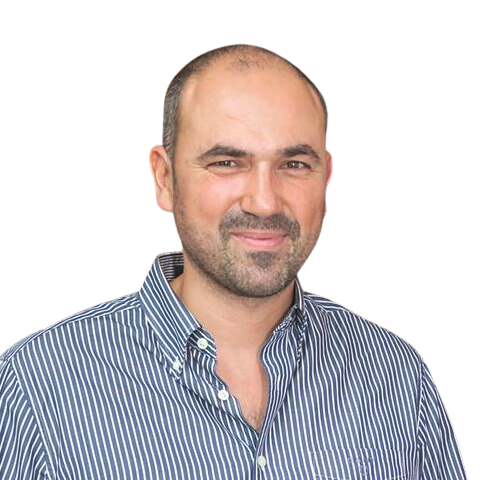Nutritional and lifestyle interventions for chronic inflammation
- ONLINE

Introduction
A wide range of lifestyle and environmental factors, including smoking, pollution, psychological stress, sleep disturbance, and circadian disruption, physical inactivity, and diets high in sugar, refined grains, alcohol, salt, trans fatty acids, oxidized lipids, and advanced glycation end-products (while being low in essential micronutrients, fibre, prebiotics, omega-3 fatty acids, and phytochemicals), along with visceral obesity, altered gut microbiome, and impaired intestinal barrier function, can have a persistent effect on activating multiple inflammatory pathways. This activation leads to a state of systemic low-grade chronic inflammation (LGCI). The significance of this is crucial for healthcare professionals to understand.
Systemic LGCI, in turn, contributes to the development of several chronic conditions, such as dyslipidaemia, hypertension, type 2 diabetes, non-alcoholic fatty liver disease, coronary heart disease, stroke, osteoporosis, sarcopenia, various types of cancer, endocrine disorders, depression, and neurodegenerative diseases. Additionally, it worsens and perpetuates conditions like osteoarthritis and chronic kidney disease. LGCI also disrupts the balance of various micronutrients and compromises immune responses, leading to an inadequate defence against infectious agents and impaired vaccine response. Furthermore, it hinders the establishment of immunological tolerance to self-antigens, thereby increasing the risk for autoimmune diseases.
Considering the profound impact of lifestyle and nutritional factors on inflammation and health outcomes, it becomes evident that interventions aimed at preventing, reducing, and resolving inflammation are of utmost importance. Healthcare professionals play a critical role in promoting and implementing these interventions to improve patient outcomes and overall well-being. This course will focus on precisely these lifestyle and nutritional interventions, providing healthcare professionals with valuable knowledge and strategies to effectively address chronic inflammation and its associated conditions. By understanding the significance of inflammation and implementing evidence-based interventions, healthcare professionals can make a substantial positive impact on the health of their patients.
Course Content
- The pathophysiology of acute inflammation
- The different forms of inflammation
- The resolution phase of inflammation
- Description and interpretation of the main inflammatory biomarkers
- Consequences of chronic systemic inflammation
– Insulin resistance, metabolic syndrome, and type II diabetes
– Non-alcoholic fatty liver disease
– Dyslipidaemia, atherosclerosis, and hypercoagulation
– Hypertension
– Endocrine disorders
– Neuropsychiatric disorders
– Nutritional imbalances
– Sarcopenia
– Osteoporosis
– Altered immune tolerance and autoimmunity
– Immunosenescence
- Inflammation, COVID-19, and post-COVID-19 syndrome
- Causes of chronic inflammation
– Pollution and Smoking
– Psychological stress
– Poor quality sleep and circadian disruption
– Physical inactivity
– Obesity
– Dietary and nutritional factors
– Endotoxemia
- Non-pharmacological interventions for the prevention and modulation of chronic inflammation
– Lifestyle modifications
– Physical exercise
– Optimization of body composition
– Circadian synchronization
– Implementing dietary and culinary strategies for the prevention of inflammation
– Utilizing targeted nutrients to actively promote the resolution phase of inflammation
– Nutritional modulation of the antioxidant defence response
– Regulation of inflammatory gene expression through nutrients and food-derived bioactive compounds
– Nutritional modulation of the intestinal barrier function and of the microbiome
Learning objectives
- General goal of the course:
The general goal of the course is to provide comprehensive knowledge and understanding of chronic systemic inflammation, including not only its pathophysiology, but also its causes and consequences, as well as its prevention and modulation by non-pharmacological interventions. It aims to equip participants with the necessary knowledge to identify and address chronic inflammation and its associated health conditions.
- Specific goals of the course:
- Understand the pathophysiology of acute inflammation: Participants will gain a deep understanding of the underlying mechanisms and processes involved in acute inflammation.
- Identify and differentiate the different forms of inflammation: Participants will learn about the various types of inflammation, such as acute and chronic inflammation, and how they manifest in different diseases and conditions.
- Explore the resolution phase of inflammation: Participants will study the resolution phase of inflammation, focusing on the mechanisms and factors involved in resolving inflammation and restoring tissue homeostasis.
- Describe and interpret the main inflammatory biomarkers: Participants will become familiar with the primary biomarkers used to assess inflammation and understand their significance in evaluating inflammatory processes.
- Recognize the consequences of chronic systemic inflammation: Participants will gain knowledge about the wide-ranging health consequences associated with chronic inflammation, including metabolic disorders, cardiovascular diseases, neurological conditions, and immune-related disorders.
- Understand the connection between inflammation, COVID-19, and post-COVID-19 syndrome: Participants will explore the relationship between inflammation and COVID-19, examining the impact of inflammation on the development and progression of the disease, as well as its potential role in the so-called long COVID-19.
- Identify the main promoters of chronic inflammation: Participants will learn about the various factors that contribute to the development of chronic inflammation, including pollution, smoking, psychological stress, sleep disturbances, physical inactivity, obesity, dietary and nutritional factors, and endotoxemia.
- Explore non-pharmacological interventions for preventing and modulating chronic inflammation: Participants will study lifestyle modifications, physical exercise, optimization of body composition, circadian synchronization, and various dietary and nutritional interventions These interventions aim to prevent, decrease, and resolve chronic inflammation and associated health conditions.
Research supporting the course
- Review co-authored by the course’s lecturer on chronic inflammation: https://www.nature.com/articles/s41591-019-0675-0
- Review co-authored by the course’s lecturer on the role of the exposome on COVID-19 severity: https://www.mdpi.com/2072-6643/14/1/24/htm
- Review co-authored by the course’s lecturer on the role of obesity and leptin resistance on COVID-19 severity: https://www.mdpi.com/2072-6643/14/7/1388
- Review co-authored by the course’s lecturer on obesity and the risk of cardiometabolic diseases: https://www.nature.com/articles/s41569-023-00847-5
- Video of a short lecture by the course’s lecturer on chronic inflammation: https://www.youtube.com/watch?v=ZCeQ-W5w1UU
- Video of a short lecture by the course’s lecturer on vitamin D: https://www.youtube.com/watch?v=LzmX2q1bJOU&t=7s
- Medscape news article about a lecture on cancer given by the course’s lecturer: https://www.medscape.com/viewarticle/974751
– Researcher at Lund University (Sweden) and at the European University of Madrid (Spain).
– B.Sc. in Nutrition and Dietetics and M.Sc. in Human Nutrition.
– Co-author of several peer-reviewed scientific papers, including a review on chronic inflammation published in Nature Medicine.
– International speaker at over 500 congresses, conferences, and courses across four continents
Pedro Carrera Bastos

Osteopaths, Physiotherapists, Nutritionists and Dietitians, Medical Doctors, Nurses and Pharmacists
Certificate of continuous professional development (CPD) issued by Medi-Cine Online Learning Academy
100
8 h
1 day - 1 Module


